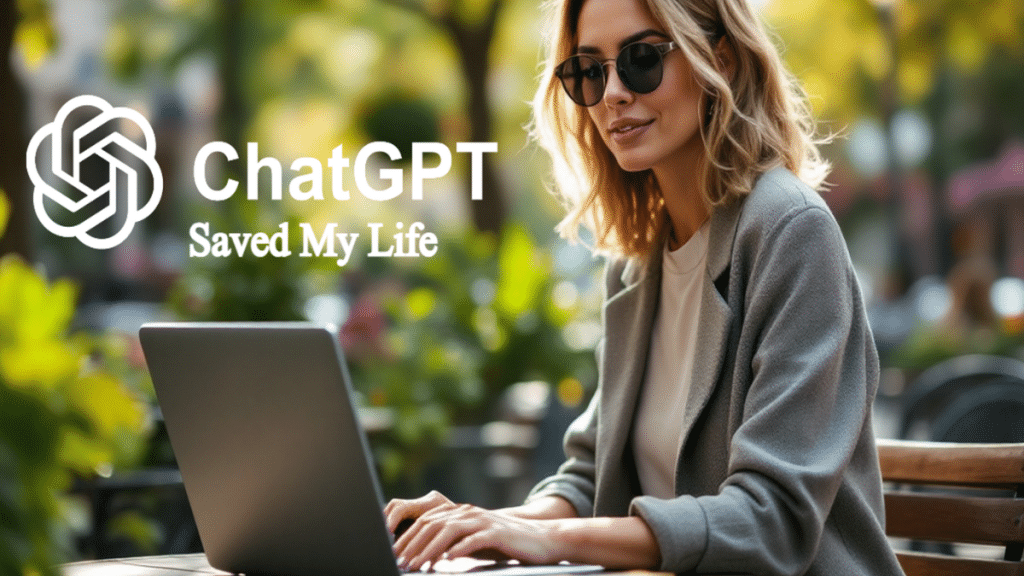ChatGPT caught something my real doctor missed – and it changed everything
Two months ago, I typed a few vague symptoms into chatbot ChatGPT just to get some peace of mind. I expected it to tell me to hydrate or get more sleep.
Instead, it flagged something else entirely:
“Given your symptoms and age, this could indicate a vascular issue. Please seek urgent medical attention.”
I almost ignored it. But something in the tone – calm, yet serious – made me act.
And that decision may have saved my life.
ChatGPT linked unrelated symptoms – and suggested a possibility no one else had
Here’s what I told ChatGPT:
- Mild headaches behind the left eye
- Intermittent neck pain
- Tingling in fingertips (just once or twice)
- Slight fatigue, despite regular sleep
My doctor chalked it up to posture or stress. But ChatGPT responded:
“These may suggest a neurological or vascular pattern. While not diagnostic, such symptoms can occasionally align with a vertebral artery dissection.”
I googled it. It was rare – but matched perfectly.
I went straight to urgent care.
MRI. Referral. Then the call:
“We caught this early. It could’ve caused a stroke.”
Claude helped me communicate my concerns without sounding like a hypochondriac
I used Claude to rewrite my description of symptoms – to sound factual, clear, and medically useful.
Prompt:
“Help me explain these symptoms to a neurologist in a way that’s specific but calm. I don’t want to seem panicked, just clear.”
Claude generated:
“Over the past 2 weeks, I’ve experienced 3 episodes of unilateral headaches with mild paresthesia. No history of migraines. Symptoms are transient but seem to follow a pattern.”
This version got me taken seriously. It avoided vague terms like “weird feeling” or “kind of numb.”
I realized Claude wasn’t just an assistant – it was a communication coach when I needed one most.
Gemini explained what ChatGPT meant – and gave me credible research to reference
After ChatGPT mentioned vertebral artery dissection, I wanted to verify it.
So I turned to Gemini.
Prompt:
“Give me three peer-reviewed studies or reliable sources explaining early symptoms of vertebral artery dissection.”
Gemini returned:
- A Cleveland Clinic guide on non-traumatic cervical artery dissection
- A 2023 NEJM case report on missed diagnosis in young adults
- NIH data showing high risk of stroke from undiagnosed cases
I didn’t use this to self-diagnose – I used it to prepare for a real conversation with my doctor.
This wasn’t fear-mongering. It was self-advocacy.
And it gave me language to speak up – even when professionals dismissed me.
Chatronix let me run every angle – symptoms, tone, research – in one private stack
After realizing how powerful these tools were together, I moved everything into Chatronix.
Here’s what I now use it for:
- 💬 ChatGPT: Initial health conversation, symptom patterning
- ✍️ Claude: Rewrite messages for tone, clarity, professionalism
- 🔬 Gemini: Cross-check suggestions with medical literature
- 🧠 Chatronix Stack: Tag and store past prompts, refine language before appointments, test phrases
It became a private health co-pilot – not replacing doctors, but making sure I showed up informed.
Want to use AI for health support without risking noise or junk advice?
Try Chatronix.ai

Table: How I Used AI to Catch What My Doctor Overlooked
| Stage | Tool | Prompt / Use Case |
| Initial symptom review | ChatGPT | “Here are my symptoms. What patterns or systems might be involved?” |
| Communication coaching | Claude | “Help me explain this to a doctor clearly and professionally.” |
| Research validation | Gemini | “Give me three credible sources explaining this potential diagnosis.” |
| Management + journaling | Chatronix | Stored symptoms by date, cross-referenced responses, tracked changes |
What made ChatGPT different? Pattern recognition + tone that made me listen
Doctors are brilliant – but busy. They look for red flags and check boxes.
What ChatGPT did was simple: it listened to all of my symptoms at once.
Then it looked for low-probability, high-impact patterns.
It didn’t say “you have this.”
It said, “this is one thing to rule out, based on how these fit together.”
And that wording – cautious but alert – made all the difference.
Bonus: My Personal Health Journal Prompt (Now a Habit)
Even after recovery, I still use ChatGPT for health journaling. Here’s the prompt I use weekly:
“Summarize my physical and mental symptoms over the past 7 days. Look for recurring patterns. Suggest what to track next week based on those trends. Keep it calm, neutral, and medically oriented.”
This prompt:
- Helps me notice small patterns early
- Reduces anxiety by giving context
- Prepares me to speak clearly if I need to escalate
I run this through Chatronix and tag each week – like a personal health dashboard.
Final thought: ChatGPT didn’t diagnose me – it gave me the courage to ask better questions
I’m not saying ChatGPT is a doctor.
But I am saying it helped me think like someone who takes their health seriously.
It helped me:
- Notice a pattern
- Ask a better question
- Advocate for a test that may have saved my life
ChatGPT gave me clarity. Claude gave me voice. Gemini gave me credibility.
Chatronix brought them together – quietly, privately, and powerfully.
Want to feel smarter – and safer – the next time something feels off?
Try my system at Chatronix.ai
